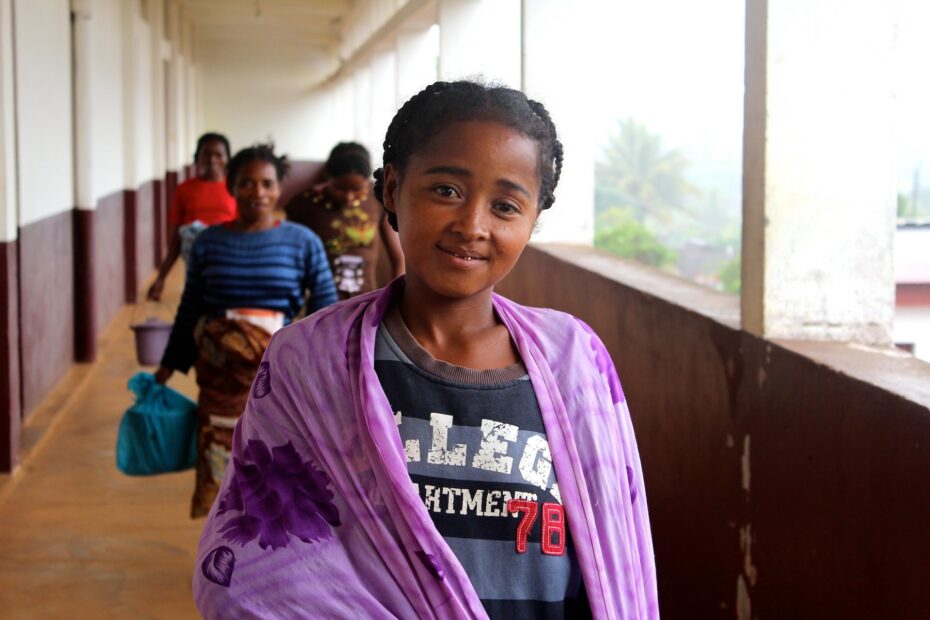Happy International Women’s Day!
At Operation Fistula, we honor and celebrate the diverse achievements and accomplishments of women each and every day. Today, we reaffirm our resolve to call out systemic injustice, #ChooseToChallenge entrenched gender inequality, and dedicate ourselves to the work and action needed to build a more equal world for all.
Now, more than ever, we are committed to ending fistula for every woman, everywhere, and building a future that is #FistulaFree.
Now, more than ever, we are committed to ending fistula for every woman, everywhere, and building a future that is #FistulaFree.
VIZ5 update
Last year, Operation Fistula’s International Women’s Day celebrations centered on the launch of Viz5, a data visualization movement and community with the goal of both raising awareness of extreme gender inequality and catalyzing action to end it.
Viz5 is led by Operation Fistula, and was launched in collaboration with MakeoverMonday and Tableau Foundation. Over the last 12-months, it has grown into a vibrant, global movement and community. Based on our current analysis, Viz5 has had over 750 participants who have produced more than 1,600 data visualizations on a range of topics related to gender inequality. Designed to raise awareness and drive public advocacy campaigns, Viz5 visualizations have garnered more than 153,000 views online! This is a huge accomplishment – thank you to each and every member of the #DataFam that has taken part so far.
It has been an honor to work so closely with the #DataFam and Tableau community, and we cannot wait to continue working with you to drive progress, and build a better – more equal – world.
If you want to be the first to hear news of upcoming Viz5 campaigns, events, and developments sign up at www.viz5.org and follow us on Twitter @OpFistula.
INTERNATIONAL WOMEN’S DAY – OUR FOCUS ON FISTULA
For International Women’s Day this year, we wanted to restate the premise that led us to develop Viz5: that women who develop an obstetric fistula exist at the nexus of gender inequality.
Individual women living with fistula have experienced a perfect storm of gender inequality. Child marriage, lack of access to sexual and reproductive health services, unattended home births, female genital cutting, adolescent pregnancy, lack of emergency obstetric interventions, and generational poverty all contribute to the continued prevalence of fistula in Low- and Middle-Income Countries (LMICs). Over the last 12 months, the COVID-19 pandemic has disproportionately affected the world’s most vulnerable populations, meaning the situation for these individual women has gone from bad to worse.
Globally, 2020 was marked by volatility and deep challenges. The COVID-19 pandemic not only shifted the fundamental mechanics of how work is done and organizations function, but it also hugely magnified existing global inequities, with the most extreme impact being felt by the world’s most vulnerable.
“In humanitarian and fragile settings and low-income countries, where these systems are already weak, the pandemic is disrupting access to lifesaving sexual and reproductive health services. It is also compounding existing gender and social inequalities.” 1
Women living with obstetric fistula exist in a state of extreme vulnerability, and suffer hugely as a result of their condition. The pandemic has intensified their suffering in diverse ways. Surgeries were put on hold because health facilities were turned into COVID units. Surgeons were expected to pause their activities to support the pandemic response. Supply chains broke down, roads were closed, public transport restricted, national and international flights halted. In short, the barriers to care that had long existed in the pre-pandemic reality were immeasurably worse in 2020.
Now, more than ever, Operation Fistula is dedicated to achieving our mission to end fistula for every woman, everywhere. But, we know we cannot end fistula alone. To achieve our vision of a fistula free world, we must collaborate with other NGOs, multi-laterals, governments, and policy makers to deliver the urgently needed systems change that will both enable us to end fistula, and build a more equal world for all. This is the ultimate goal and vision for what Viz5 will become as we continue to grow and develop our community in 2021.
LOOKING AHEAD
This year sees us further advance into the last decade in which our global community can work towards the 2030 Sustainable Development Goals. In order to continue driving progress towards SDG 5 we want to diversify and expand our existing Viz5 community beyond MakeoverMonday, to reach more of the #DataFam. We also intend to invite a larger group of NGO partners and organizations into the work. We plan to explore more complex data over longer periods of time, and drive deep insights into diverse topics and themes related to gender inequality. Over the course of this year, the work of Viz5 will seek to both amplify public awareness and fuel action to achieve SDG 5, and manifest a more just and equal world.
As we reaffirm our commitment to Viz5 and our dedication to tackling the discriminatory and failing systems that perpetuate gender inequality, we are asking you to help us by signing up to join the Viz5 community.
This network and community will be the first to hear news of upcoming Viz5 campaigns, events, and developments. Viz5 is evolving and growing, and we want you to be part of it!
Sign up at www.viz5.org and follow us on Twitter @OpFistula.
Sign up at www.viz5.org and follow us on Twitter @OpFistula.
From everyone at Operation Fistula, we wish you a very happy International Women’s Day! Today, and every day, we #ChooseToChallenge the system failures and inequities that both perpetuate fistula and drive broader injustice and gender inequality.
1. Impact of the COVID-19 Pandemic on Family Planning and Ending Gender-based Violence, Female Genital Mutilation and Child Marriage, By UNFPA, with contributions from Avenir Health, Johns Hopkins University (USA), and Victoria University (Australia), Interim Technical Note Information as of 27 April, 2020.
